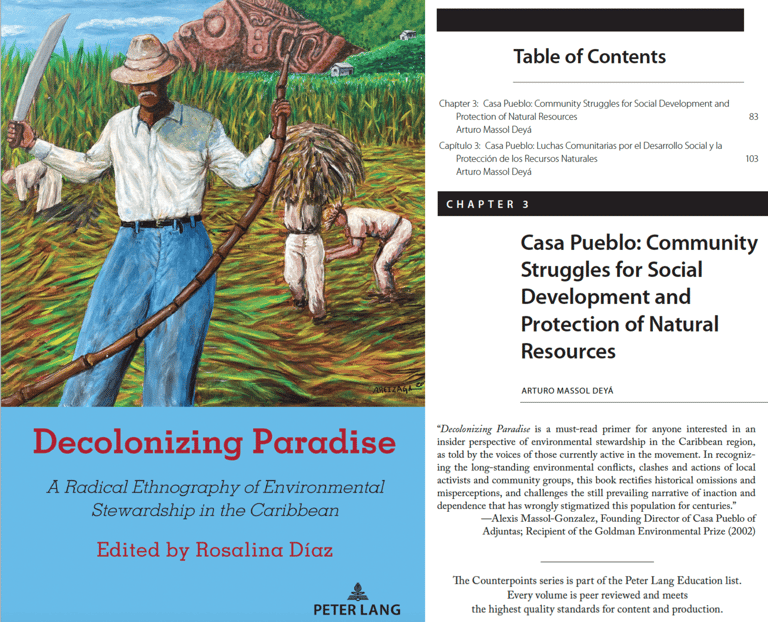“Our Energy for Our Country,” Scenario Journal 07: Power, January 2020
Otras publicaciones


INTRODUCTION: THE MAKING OF AN ENVIRONMENTAL ACTIVIST
Third grade started differently from my other school years. In August 1977, my mother— an English teacher— woke me early in the morning to tell me that I would not be attending my usual classes at José Julián Acosta Elementary School in Adjuntas, a coffee plantation zone in the mountains of Puerto Rico. Instead, I would be joining her and other teachers, parents, and students to protest the presence of carcinogenic asbestos in the classrooms of many elementary schools. I did not know exactly what asbestos was, or the impact it was having on me or my classmates, but I knew an invisible threat loomed over us. That day marked the first ever picket line in Adjuntas, in front of the District School Office. I walked around following others in the middle of the main street, shouting slogans about the need to confront that unwanted reality. I learned science in the process, as the group explained the health risks associated with asbestos exposure, especially in children and young adults. Demanding action through protest was new, not just to me but to the entire community. It took a few months, but the community prevailed. The classrooms with asbestos were closed and rebuilt.
After the asbestos struggle, my parents committed to confronting injustice. My father ended his civil engineering practice to open the first bookstore in town, Librería Palenque. A few locals were regular customers, and soon enough, Librería Palenque became a center for political discussions. When the government announced an open strip- mining proposal in 1980, people in the community were already aware of natural resource exploitation conflicts in Latin America. A major confrontation was about to take place as the community organized to protect themselves. As a result of this arduous process, the community- based organization Casa Pueblo was born.
I was educated in the public school system, and later at the University of Puerto Rico, but my most meaningful learning space was Casa Pueblo’s social community school. At Casa Pueblo, my brothers and I were included in adult conversations and long planning meetings at different locations, assigned duties during public campaigns, and taught valuable life skills, such as carpentry, sound & lighting, video and audio recording, photography, and magazine layouts. During this process, I witnessed the evolution of the message, watching my father present lectures on the threat of mining and the importance of community organization, over and over again. I learned to think in collective terms. As our collective ecological awareness increased, we became immunized from the ideologies that divide us as an Island- nation.
However, I also learned that participation in community- based struggles with ecological consciousness is a subversive act with consequences. Political persecution during the Cold War era was harsh and continues today in other forms. My family experienced harassment on many levels. Following the asbestos protest, my mother’s workplace location, grade level, and teaching schedule were changed. After school, I had to spend the afternoon with my grandparents to wait for my mother to complete her new teaching shift. I learned that administrative decisions were imposed upon a few teachers for their involvement in the protest, and some collaborators even lost their jobs. I was exposed to political repression for the first time, which was new to me, but not to Puerto Rico. Later, secret police files with our intimate data— known as Carpetas— were compiled by police officers, confidential informants, and FBI agents, but that was only the beginning. Our home was broken into several times, our family pets were lynched at the front door and surveillance was ongoing. Some people in the community grew afraid of us. After a certain point, some parents approached my mother and father to ask them to prevent us from playing with their children. Of course, it was not their choice, and some of them are still good friends and key collaborators with Casa Pueblo.
Out of these struggles, I became a scientist committed to my community.